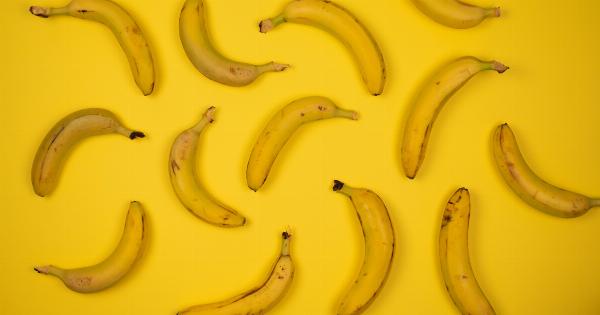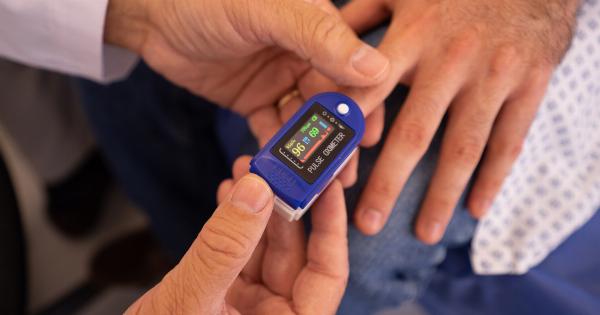When it comes to managing your cholesterol levels, diet plays a critical role. Making smart choices about what you eat can help you maintain healthy cholesterol levels and reduce the risk of heart disease.
While many people focus on avoiding high cholesterol foods, it is equally important to incorporate snacks into your diet that actively help in lowering cholesterol levels. In this article, we have compiled a list of the top ten smart snacks for low cholesterol that will not only keep you healthy but also satisfy your cravings.
1. Almonds
Almonds are not only a tasty and crunchy snack, but they are also rich in heart-healthy monounsaturated fats that help reduce LDL (bad) cholesterol levels in the body.
Additionally, almonds contain fiber and vitamin E, which further contribute to maintaining healthy cholesterol levels. Keep a handful of almonds handy for a quick and nutritious snack between meals.
2. Oatmeal
Oatmeal is a true superstar when it comes to low cholesterol snacks. The soluble fiber called beta-glucan present in oatmeal helps reduce LDL cholesterol levels, making it an ideal option for those looking to manage their cholesterol.
To make your oatmeal even healthier, top it off with a sprinkle of heart-healthy nuts like almonds or walnuts.
3. Apples
An apple a day not only keeps the doctor away but also helps you in your cholesterol management efforts. Apples are rich in pectin, a type of soluble fiber, which helps lower cholesterol levels by trapping LDL cholesterol and removing it from the body.
Make apples a part of your daily snack routine to boost your heart health.
4. Blueberries
Blueberries are not only delicious but also high in antioxidants and soluble fiber, both of which contribute to reducing LDL cholesterol levels.
These tiny berries also contain compounds called anthocyanins, which have been found to help improve heart health. Enjoy a handful of fresh blueberries as a sweet and healthy snack to support your low cholesterol diet.
5. Greek Yogurt
Greek yogurt is an excellent source of protein, calcium, and probiotics. It is also lower in lactose compared to regular yogurt, making it easier to digest for those with lactose intolerance.
Including Greek yogurt in your snack routine can help lower LDL cholesterol levels and support overall heart health.
6. Avocado
Avocado is a nutrient-packed fruit that is rich in healthy monounsaturated fats. These good fats help raise HDL (good) cholesterol levels while lowering LDL cholesterol levels.
Incorporating avocados into your snacks, such as on whole-grain toast or in guacamole, can be a tasty and heart-healthy choice.
7. Carrots
Carrots are not only rich in beta-carotene, which is beneficial for eye health, but they also contain soluble fiber that aids in reducing LDL cholesterol levels.
Carrot sticks make for a crunchy, low-calorie snack that can help support your low cholesterol diet.
8. Hummus
Hummus is a popular Middle Eastern dip made from chickpeas, tahini (sesame seed paste), lemon juice, and garlic. Chickpeas are packed with soluble fiber and plant compounds that have been shown to help lower cholesterol levels.
Enjoy hummus with carrot sticks or whole-grain crackers for a satisfying and cholesterol-friendly snack option.
9. Dark Chocolate
Yes, you read it right! Dark chocolate can be a part of your low cholesterol snacking routine.
Dark chocolate, with a high percentage of cocoa (70% or more), is loaded with antioxidants and flavonoids that promote heart health and reduce LDL cholesterol oxidation. However, remember to consume it in moderation as a part of a balanced diet.
10. Edamame
Edamame, or young soybeans, is a protein-rich snack that is also packed with fiber. The combination of protein and fiber helps lower LDL cholesterol levels and promotes a feeling of fullness.
Boiled or steamed edamame with a sprinkle of light salt makes for a nutritious and filling snack option.
By incorporating these ten smart snacks into your low cholesterol diet, you can successfully manage your cholesterol levels while enjoying delicious and satisfying options.
However, it is important to remember that snacks should be a part of an overall balanced diet and not replace meals. Consult with a healthcare professional or a registered dietitian for personalized advice tailored to your specific needs and health conditions.





























